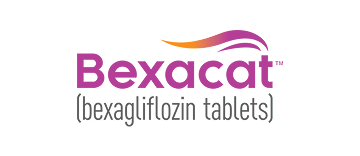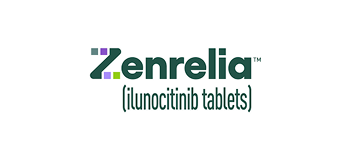Prednisolone
Prescription required.
You already have a

subscription.
You already have a

subscription in cart.
Your order may arrive in two packages. We ship non-Rx items without delay while the Rx approval is pending. You will receive two tracking numbers.
Prescription required.
You already have a

subscription.
You already have a

subscription in cart.
Your order may arrive in two packages. We ship non-Rx items without delay while the Rx approval is pending. You will receive two tracking numbers.


What is Prednisolone?
Prednisolone is a corticosteroid used to treat various inflammatory and allergy conditions as well as other diseases. It reduces swelling and inflammation which can reduce pain or decrease the possible joint damage that is caused by chronic inflammation. Prednisolone requires a prescription from your veterinarian, and is sold per tablet or available as an oral solution.
Note: Prednisolone Compound is also available.
For:
Cats and Dogs
Benefits:
- Treats a wide range of inflammatory and auto-immune conditions
- Remedies swelling and itchy skin caused by allergies
- Reduces redness, itching, and allergic reactions affecting the eyes
How does Prednisolone work?
Prednisolone is a corticosteroid, which suppresses the inflammatory response to a variety of agents. Prednisolone can also be used as an immunosuppressive drug for organ transplants and in cases of adrenal insufficiency (Addison's disease).
Cautions:
Without first talking to your veterinarian, don't give your pet any over-the-counter or other prescription medications while giving Prednisolone. There are possible side effects, including insomnia, nausea, vomiting, upset stomach, and fatigue. Tell your veterinarian if your pet has kidney or liver disease, heart disease, stomach ulcers, hypothyroidism, diabetes mellitus, or any other medical conditions.
Brand Name:
PrednisTab (Vet-A-Mix)
Generic Name:
Prednisolone
What is the most important information I should know about Prednisolone?
Prednisolone is a prescription medication that is used in dogs and cats. Prednisolone is available as 5mg and 20mg scored tablets and an oral solution. The usual dose is determined based on the condition being treated and the pet's response to treatment. Prednisolone should not be stopped suddenly. There should be a gradual reduction in dosage before stopping. Prednisolone should be taken with food to lessen stomach upset.
What should I discuss with my veterinarian before giving Prednisolone to my pet?
Do not give Prednisolone to your pet if the pet has a serious bacterial, viral, or fungal infection. Prednisolone weakens a pet's immune response and its ability to fight infections. Tell your veterinarian if your pet has kidney or liver disease, heart disease, stomach ulcers, hypothyroidism, diabetes mellitus, or any other medical conditions. Also tell your veterinarian if your pet is pregnant or lactating.
How should Prednisolone be given?
Give this medication exactly as directed by your veterinarian. Do not give more or less than is prescribed by your veterinarian. If you do not understand the directions ask the pharmacist or veterinarian to explain them to you. Keep plenty of water available for your pet. Prednisolone should be given with food. Store Prednisolone at room temperature away from moisture and heat. Keep this medication away from children and pets.
What are the possible side effects of Prednisolone?
If any of the following serious side effects occur, stop giving Prednisolone and seek emergency veterinary medical attention: an allergic reaction (difficulty breathing; swelling of the lips, tongue or face; hives), increased blood pressure, or sudden weight gain. Other less serious side effects may occur. Continue giving Prednisolone and talk to your veterinarian if your pet experiences insomnia, nausea, vomiting or stomach upset, fatigue, muscle weakness or joint pain, problems with diabetes control, or increased hunger or thirst. Other side effects that occur rarely, usually with high doses of Prednisolone include thinning of the skin, cataracts, glaucoma, or behavior changes. Other side effects may also occur. Talk to your veterinarian about any side effect that seems unusual or bothersome to the animal.
What happens if I miss giving a dose of Prednisolone?
If you give one dose daily, give the missed dose as soon as remembered. However, if you don't remember until the next day, skip the missed dose and give only the regular daily dose. If you give more than one dose daily, either give the missed dose as soon as remembered, or give two doses the next dose time. If you give one dose every other day, give the missed dose as soon as remembered, then go back to the regular every other day schedule.
What happens if I overdose my pet on Prednisolone?
Seek emergency veterinary medical treatment. A single large dose of Prednisolone is unlikely to cause symptoms or death. An overdose is more likely to occur due to large doses being taken over a period of time. Symptoms of overdose include weight gain, panting, increased thirst, hunger and urination, vomiting, diarrhea, and Cushing's syndrome.
What other drugs will affect Prednisolone?
Do not give any other over-the-counter or prescription medications, including herbal products, during treatment with Prednisolone without first talking to your veterinarian. Many other medications can interact with Prednisolone resulting in side effects or altered effectiveness.


Prednisolone Directions:
- Prednisolone is a prescription corticosteroid that is used in dogs and cats to treat various conditions such as Addison's disease, inflammation from arthritis, allergies and certain autoimmune diseases.
- Prednisolone reduces swelling and decreases a pet's ability to fight infections.
- Give Prednisolone with food to lessen stomach upset.
Prednisolone should not be stopped suddenly. There should be a gradual reduction in dosage before stopping.
Prednisolone Dosage:
| Weight | Dosage |
|---|---|
| All weights | The usual dose is determined based on the condition being treated and the pets response to treatment. Prednisolone should be given with food. Allow plenty of water for your pet to drink. |
| Weight | Dosage |
|---|---|
| All weights | The usual dose is determined based on the condition being treated and the pets response to treatment. Prednisolone should be given with food. Allow plenty of water for your pet to drink. |
| Horses | Do not use! |
|---|
Storage:
Store this product at room temperature, away from moisture and heat.


Prednisolone Ingredients:
| Active Ingredient (per tablet) | Amount |
|---|---|
| Prednisolone | 5 mg |
| Active Ingredient (per tablet) | Amount |
|---|---|
| Prednisolone | 20 mg |
| Active Ingredient (per tablet) | Amount |
|---|---|
| Prednisolone | 15 mg/ 5 ml |


 Swipe
Swipe


















































